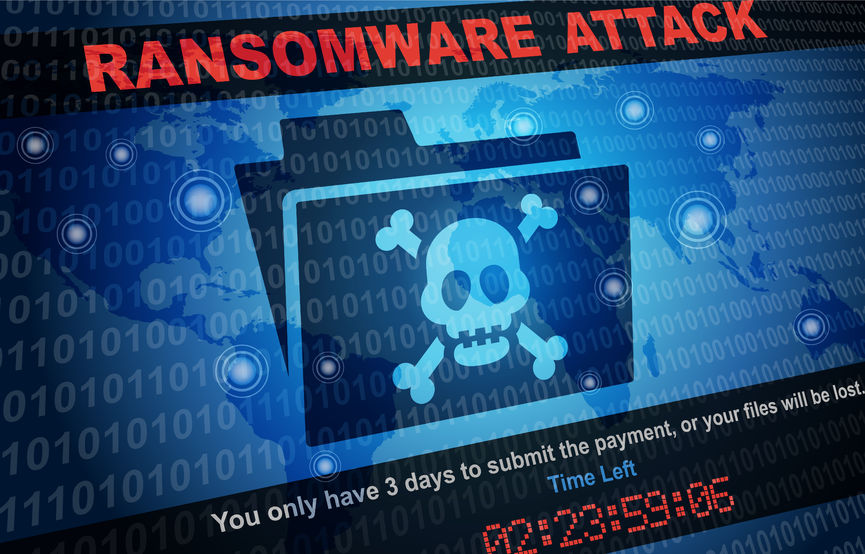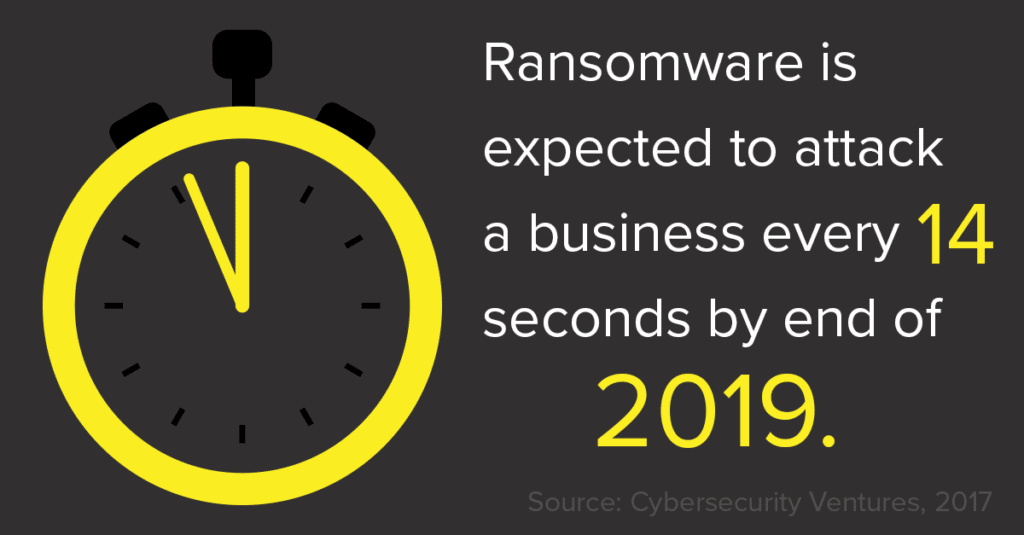We’ve been posting a lot lately about cybersecurity. In part, this is because we’ve recently rolled out a cybersecurity solution called Complete Security. But that’s not the only reason. We truly believe that cybercrime is one of the biggest business threats to companies today; one that most are underprepared to manage.
In today’s post, we’ll give you four reasons and an example of why cybercrime and preventive cybersecurity should be top of mind when it comes to IT for businesses of all sizes.
A recent statistic released by Cyber Ventures indicated that by the end of 2019, ransomware will attack a business every 14 seconds. In fact, more than a million cyberattacks take place worldwide, every single day. 43 percent of those attacks target small businesses. Here’s why you should be concerned about cybercrimes like these.
Cybercrime Costs You Money
We’ve posted in the past about the high costs of cybercrime. There are multiple ways that cybercriminals can cost your business big money. For instance, a ransomware attack may demand thousands of dollars in order to restore data. Of course, we believe you shouldn’t pay those ransoms, but you may still have to pay to have your data restored. Another form of cybercrime, called phishing, may result in disclosure of sensitive information that could allow a cybercriminal to commit identity theft.
Cybercrime can cost you in other ways too, such as lost productivity if your company is hit by a malware attack, or lost time spent dealing with viruses and email spam.

Cybercrime Could Put You Out of Business
How bad can a cyberattack be for your business? It could actually put you out of business. That’s what happened recently to a medical practice in Michigan. Hackers held the patient data of Brookside ENT and Hearing for a $6500 ransom. The practice’s owners opted not to pay, resulting in deletion of the records. The doctors opted to retire early rather than attempt to rebuild their business after all of their patient and financial records were lost.
Cybercrime Damages Your Reputation
Cybercriminals intent on committing ransomware attacks target your business’ customer data for multiple reasons. The main reason is that they know it’s not only essential to running your business, but also, it’s information that your customers have entrusted you to protect. Failure to do so undermines that trust and damages customer relationships. Because of this, criminals know that business owners may be willing to pay dearly to restore this data.
But there are other cybercrimes that can damage your reputation. Today, cybercriminals are branching out beyond well known attack vectors such as malware and ransomware, into other types of crime that depend on trust to succeed.
One of these types of attacks is called email spoofing, in which the criminal poses as someone victims trust – such as a colleague or business parter – in order to access sensitive information. Poor security protocols and lack of user education can leave your organization and its customers more vulnerable to these kinds of attacks, damaging your reputation and reducing your customers’ trust in you.
Cybercrime Creates Regulatory Risk
The fourth way that cybercrime can cost your business is in your exposure to regulatory risk. In many industries such as financial services, health care and the legal industry, businesses are required by law to comply with regulatory requirements to secure their customer data against hacking and cybercrime. When businesses fail to do this or to abide by best practices to protect customer data, they can be exposed to regulatory fines and other costly penalties.
Contact Tolar Systems
Companies can avoid these kinds of worst-case scenarios with a proactive approach to cybersecurity that is focused on preventing cybercrimes, not just reacting to them. Contact Tolar Systems today to learn more about our proactive Complete Security solution and how it can help your business prepare, prevent, detect and respond to cybersecurity threats.

